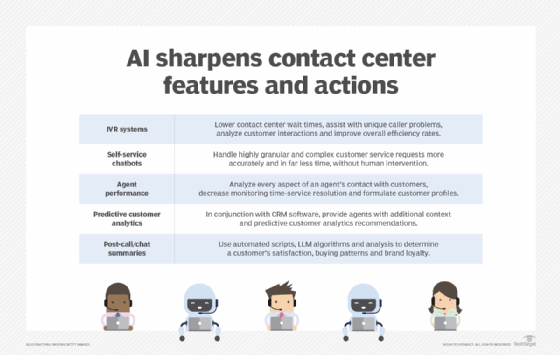Bills proposed in both the U.S. Senate and House of Representatives would rewire contact center AI technology and the practice of outsourcing the work to places such as the Philippines, India, Eastern Europe and Latin America.
Experts advise customer service and contact center leaders to monitor the bills closely so they are not caught flat-footed if the legislation passes and their companies’ operations are significantly affected.
The Keep Call Centers In America Act of 2025 — both versions sponsored with bipartisan support — would keep tabs on which U.S. companies with more than 50 employees plan to offshore at least 30% of their customer support operations or plan to relocate a whole contact center offshore. The Secretary of The U.S. Department of Labor would keep a publicly available list of these businesses — those that make the list risk losing federal grants and would be ineligible for federal contracts.
While the bills do not discuss the Secretary of Labor listing companies that currently offshore contact center operations, they give consumers the right to talk to a U.S.-based customer service agent when they ask for it, whether they are talking to a non-U.S. agent or an AI agent. Noncompliance could result in penalties up to $10,000 per day, or for existing federal grant or loan holders, monthly penalties of 8.3% of their total award.
For contact centers, one positive aspect of the bills — as currently constructed — is that they give a one-year grace period to get in compliance if and when they pass.
That said, the costs of complying with these bills would be “astronomical” for the affected companies, said Mark Rohan, chief operating officer of Klearcom, a Waterford, Ireland-based company that tests interactive voice response and AI agents for contact centers. He added that enforcing the regulations would be impossible.
Rohan and two other experts said that the bills have principles that align with current best practices for good customer service, such as figuring out what parts of AI workflows frustrate customers and escalating those calls to humans more quickly. However, executing those best practices as the bills are written could amount to a costly disruption for many businesses.
“The administrative cost is going to be a huge burden for not just the companies, but also for the government,” Rohan said. “… The whole outsourcing model, I don’t think, is ever going to go anywhere.”
Does it help or hinder AI?
If the law were to pass, it could accelerate the adoption of contact center AI and potentially make customer service worse, said Ian Jacobs, vice president and lead analyst at Opus Research. Some companies will limit their customer service hours and cut back from the 24/7 service they offer now, with people in offshore contact centers absorbing overnight call volume.
The bills could also affect the adoption of AI agents in a couple of different ways, in Jacobs’ view: It may force users to focus on back-end AI agent-assist tools and coaching that make humans more efficient at solving problems at the expense of AI agent development. More likely, it could also accelerate AI agent rollouts that aren’t quite ready.
“Customer service experience ain’t that great at the moment, because brands are already kind of rushing into AI without the proper planning, process management, change management and all of the integrations they probably need,” Jacobs said. “This would just accelerate that.”
The bills would require U.S.-based human capacity, which the industry isn’t equipped to handle now. Jacobs compared the economics to the President’s tariff policy.
“If tariffs are a tax on goods, this is a tax on customer care,” Jacobs said. “There aren’t enough U.S.-based contact center agents to handle all of the demand, and there’s not enough money in the world for the brands to pay for what would be required to have enough butts in seats.

Offshoring evolves
U.S. business process outsourcers that provide contact center services have been growing over the last few years, Jacobs said, as more companies decide that having U.S. customer service reps is worth the cost. These vendors will greatly benefit if the Keep Call Centers in America Act passes.
While many large companies maintain offshore contact centers, a few notable industries — such as airlines — already have contact centers in the U.S as a standard business practice to serve customers more quickly.
But Gartner estimates that 78% of the telecommunications sector, 72% of financial services companies, 65% of healthcare, 61% of retail and 58% of technology companies outsource at least some portion of their customer service operations. The costs of compliance with these proposed bills could multiply customer service costs several times compared with what they’re paying now, Jacobs said.
The Keep Call Centers In America bills will have significant operational and strategic implications on financial services companies, which already have tight regulatory oversight on customer service operations, said Josh Lewis, an attorney in the Bradley law firm’s Banking & Financial Services Practice Group. Not only will they need to get U.S. contact centers into compliance, but they will also have to reconsider how they use AI.
“I think AI, if used correctly, can be a valuable tool,” said Lewis, many of whose clients manage contact centers. “There are plenty of instances where AI is not perfect right now. If you don’t have systems in place to counteract that, then you can see some issues.”
Ultimately, large global companies such as banks may find themselves running two different playbooks, Jacobs said: One for compliance in the United States, and another for efficiency with the rest of the world. Americans might find they’re not getting the efficient service they want — which the rest of the world receives — and they’ll be paying for it, to boot, he added.
Don Fluckinger is a senior news writer for Informa TechTarget. He covers customer experience, digital experience management and end-user computing. Got a tip? Email him.

